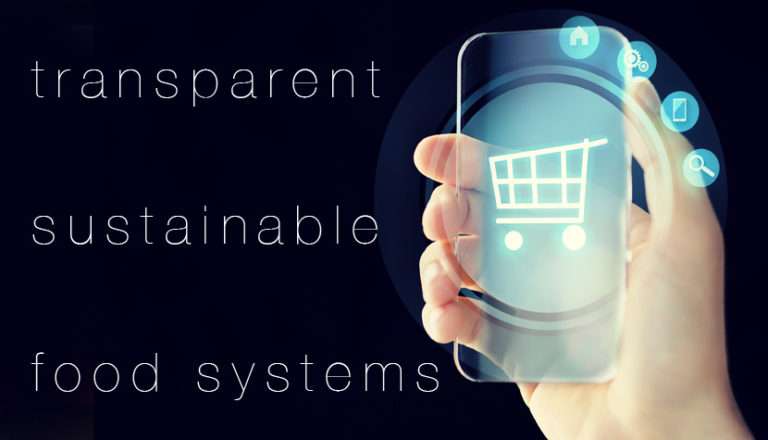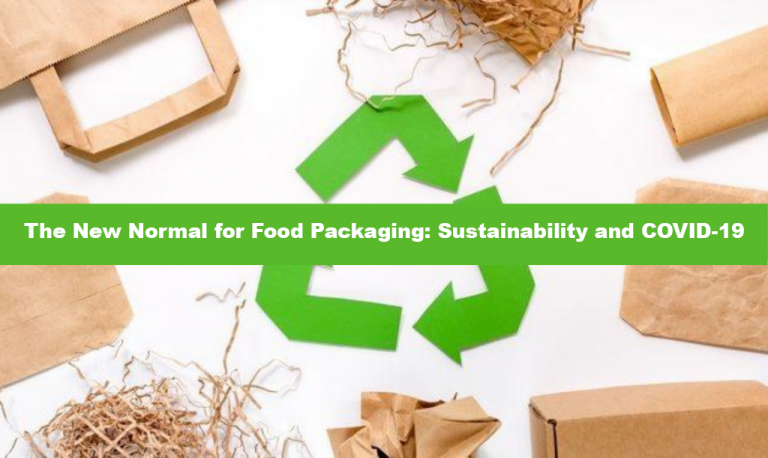Feb 2, 2023
Sustainable Food Brands and Your Consumer
Where are Consumers on Sustainable Food Brands?

It’s hard to miss this sustainability trend that has taken over both business practices and consumer decision-making. We live in an information age, and that information draws us to action. With more people familiar with environmental threats, economic inequality, social injustice, and other issues, it’s only natural that consumers are increasingly trying to make decisions focused on sustainability—this includes a growing market for sustainable food brands.
But what does sustainability mean, strictly, for food brands? And how can you capitalize on food brand sustainability to reach a bigger audience and secure more brand loyalty?
What Is Sustainability in the Food and Beverage World?
Sustainability can be defined in more than one way. Generally, it means following strategies and practices that allow you to continue operating indefinitely with no negative repercussions. For example, polluting harmful chemicals into a local waterway isn’t sustainable because it causes measurable damage and eventually makes it unusable.
Colloquially, people use the term sustainability to refer to environmental sustainability. But we can also think about economic and social sustainability in similar ways. So, for example, a sustainable food brand would (ideally) ethically source its ingredients, follow environmentally friendly processes, and ultimately give back to its community.
Why Is Sustainability So Important to Consumers?
Consumers crave sustainability in the products they buy and the brands they support. But why is there such enthusiasm for sustainability?
There are a few possible explanations. It could be that access to more information leads to heightened awareness. It could be a generational difference, with Millennials and Generation Z caring more about social causes than their predecessors. And, of course, some of this is attributable to an overall trend; if all your friends are making sustainable purchases, you’ll want to follow suit.
Top Sustainable Food Brands to Learn From
If you’re thinking about bringing more sustainability into your food brand, you have many contemporaries to learn from. These are some of the top sustainable food brands that can teach you important lessons about how to approach and market your sustainability:
- ButcherBox. Where does your meat come from? You don’t have to worry about that with ButcherBox. This company prides itself on ethical sourcing practices, allowing it to choose only humanely raised meats – with no hormones or antibiotics.
- Tillamook. Tillamook is a co-op owned by farmers specializing in tasty dairy products. Ice cream, flavored yogurt, and butter from this company are all worth trying. And you can rest easy knowing they practice business with respect to core values of equity, animal welfare, stewardship, and environmental sustainability.
- Thrive Market (and Yogi Tea). Thrive Market provides fresh, organic, fair-trade, healthy foods that cater to specialized diets. One of its top products is Yogi Tea, which can also be found in most grocery stores. These ethically sourced tea blends are fully sustainable. Plus, sales proceeds go back to local and global communities.
- Greyston Bakery. Greyston Bakery encourages you to “eat brownies, change lives” in its punchy slogan. In addition to making dense, delectable desserts (without preservatives or artificial ingredients), this company sends all profits to its nonprofit foundation, which is dedicated to building stronger local communities in and around Yonkers, New York.
- Chobani. You have probably seen Chobani products in your local grocery store. From coffee creamers to cold brew, Chobani produces delicious products while staying true to its core pillars: environmental stewardship, animal care, worker well-being, local sourcing, economic opportunity, and dairy farm support.
- Pete and Gerry’s. Whether you’re a breakfast enthusiast or a renowned local baker, you probably go through a lot of eggs. And if you buy from Pete and Gerry’s, you can ensure those eggs come from small farms with free-range chickens and organic processes. In addition, these eggs are certified humane.
Improving Sustainability in Your Own Business
If you want to improve sustainability in your own business, these are some of the best strategies and tips to follow:
- Start with your brand purpose. What is your brand purpose? Why does your brand exist, and what are you trying to accomplish? This is your opportunity to define your most important causes and priorities. For example, are you all about protecting the environment? Are you more passionate about social justice? Do you just want to support your local community? Once you figure these values out and document them, you’ll find them much easier to work into your marketing and messaging.
- Capitalize on existing trends. Take a look at recent sustainability trends and try to capitalize on them. What do people (especially people in your target demographics) care most about, and how can you cater to that cause? For example, are people in your target audience increasingly worried about the treatment of animals on factory farms? What solutions have been most unanimously celebrated among your target audience?
- Target the right people. Not everyone in your audience will prioritize sustainability equally, and some of your target demographics may not care about sustainability. If you want to be effective in choosing the right causes and marketing those causes, you need to understand how your specific audience thinks – and sell them a message that genuinely appeals to them.
- Show off your achievements. If and when you have significant sustainability wins, show them off. For example, brag about how you reduced your carbon emissions by 50 percent in a year. Highlight stories of individuals you helped with donations and volunteering. Submit a press release when you reach a significant milestone, like raising $100,000 for a local environmental charity. It’s also essential to write and publish regular sustainability reports.
- Work with professionals. Finally, work with professionals if you can. Pursuing the tenets of sustainability is complex, and communicating your pursuit is even more difficult. However, if you have an experienced food and beverage marketing agency on your side, everything gets easier.
Are you ready to make your food and beverage products more sustainable? Or do you just need help to make sure your food and beverage marketing strategies reach the right people? Then, NewPoint Marketing is ready to be your partner. Contact us to learn more today!






